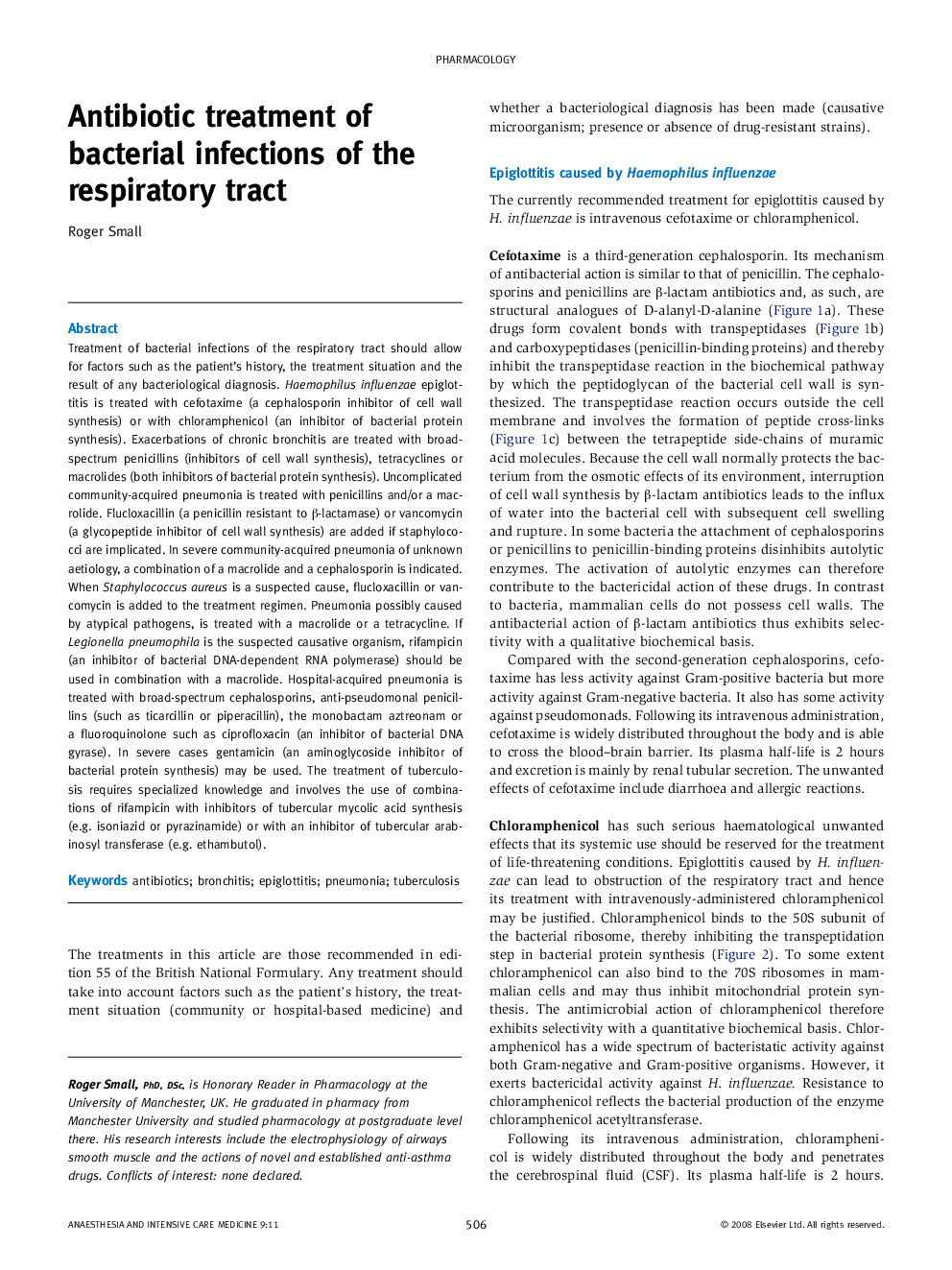| Article ID | Journal | Published Year | Pages | File Type |
|---|---|---|---|---|
| 2743690 | Anaesthesia & Intensive Care Medicine | 2008 | 5 Pages |
Abstract
Treatment of bacterial infections of the respiratory tract should allow for factors such as the patient's history, the treatment situation and the result of any bacteriological diagnosis. Haemophilus influenzae epiglottitis is treated with cefotaxime (a cephalosporin inhibitor of cell wall synthesis) or with chloramphenicol (an inhibitor of bacterial protein synthesis). Exacerbations of chronic bronchitis are treated with broad-spectrum penicillins (inhibitors of cell wall synthesis), tetracyclines or macrolides (both inhibitors of bacterial protein synthesis). Uncomplicated community-acquired pneumonia is treated with penicillins and/or a macrolide. Flucloxacillin (a penicillin resistant to β-lactamase) or vancomycin (a glycopeptide inhibitor of cell wall synthesis) are added if staphylococci are implicated. In severe community-acquired pneumonia of unknown aetiology, a combination of a macrolide and a cephalosporin is indicated. When Staphylococcus aureus is a suspected cause, flucloxacillin or vancomycin is added to the treatment regimen. Pneumonia possibly caused by atypical pathogens, is treated with a macrolide or a tetracycline. If Legionella pneumophila is the suspected causative organism, rifampicin (an inhibitor of bacterial DNA-dependent RNA polymerase) should be used in combination with a macrolide. Hospital-acquired pneumonia is treated with broad-spectrum cephalosporins, anti-pseudomonal penicillins (such as ticarcillin or piperacillin), the monobactam aztreonam or a fluoroquinolone such as ciprofloxacin (an inhibitor of bacterial DNA gyrase). In severe cases gentamicin (an aminoglycoside inhibitor of bacterial protein synthesis) may be used. The treatment of tuberculosis requires specialized knowledge and involves the use of combinations of rifampicin with inhibitors of tubercular mycolic acid synthesis (e.g. isoniazid or pyrazinamide) or with an inhibitor of tubercular arabinosyl transferase (e.g. ethambutol).
Related Topics
Health Sciences
Medicine and Dentistry
Anesthesiology and Pain Medicine
Authors
Roger Small,
